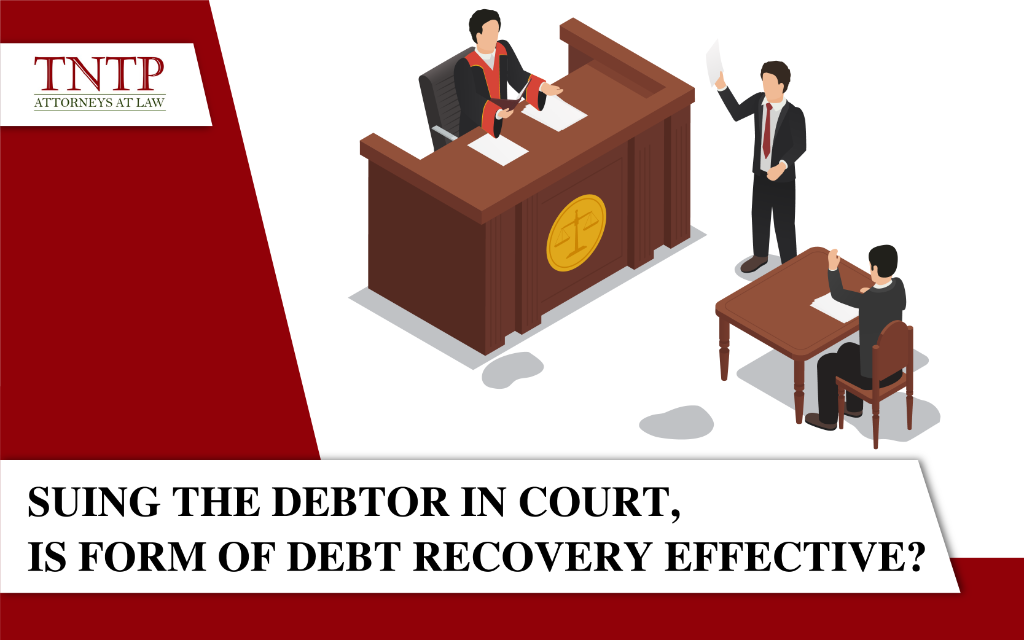Suing the debtor in court, is this form of debt recovery effective?

Suing the debtor is often the method chosen by the creditor. When most of the methods applied to debt collection do not bring the desired results, the enterprise will initiate a lawsuit against the borrower in court. However, filing a debt recovery lawsuit is not easy and simple in reality. Here are some difficulties in debt recovery by suing in Court.
1. Suing the debtor progress slow due to failure to send procedural documents to clients, defendants and persons related to the case
During the proceedings, in order to have a basis for settling the case, Court usually has to send procedural documents to plaintiffs, defendants and persons with related rights and obligations to the case. However, many defendants or persons with related rights and obligations often deliberately evade and do not cooperate in solving the case… It is possible that information related to assets, interests and obligations of related parties has been agreed in detail in credit contracts, financial contracts and other agreements, but due to the delay or failure to send the Court documents to the defendant or related person, the settlement of the case has been delayed when the credit institution files a lawsuit against the customer, the mortgagor.
2. Court’s case settlement time is extended
The non-cooperation of the defendant and the person with related interests and obligations in this case will prolong the court’s settlement of the case. Courts must verify and post procedural documents according to the provisions of Civil Procedure Code before they can judge in their absence. In addition, some defendants also authorize lawyers to participate in the proceedings with the aim of prolonging the time limit for settling the case as long as possible (requiring collecting more documents and evidence, soliciting an expert assessment of documents, etc.). For complicated cases with many people with related interests and obligations, the trial court being postponed many times is inevitable, which causes frustration and fatigue for the credit institutions in participating in the proceedings.
3. About the time to Suing the debtor
According to Article 179 of Civil Procedure Code 2015, for civil and business or trade cases that are disputes related to credit contracts, the time limit for trial preparation is 02 months from the date of acceptance of the case (for complicated cases, the chief judge of the court may extend the time limit for trial preparation but must not exceed 02 months), but in fact many courts do not strictly comply with the time limit for trial preparation prescribed by Civil Procedure Code.
4. The process of judgment enforcement is difficult
After the court’s decision or judgment is issued, the creditor has the right to request the competent judgment enforcement agency to execute the court’s decision or judgment by means as prescribed by law. However, in many cases, the judgment or decision is completely in favor of the creditor, but the judgment enforcement process may be slow and unenforceable for many reasons such as the process of verifying the assets to be executed taking a long time, the debtor’s having no assets for judgment enforcement; or the debtor being no longer active to be able to repay the debt, etc. This leads to the creditor taking a long time to collect the debt, or even not being able to recover the debt despite the clear and legal decision and judgment of the Court.
Initiating a lawsuit to recover a debt is not simple for many different reasons. However, there is no denying the popularity and value of suing in debt recovery activities. Creditors should consider their options based on the actual situation, the debtor’s financial ability, and their own time and budget to make a wise decision.
Best regards,



